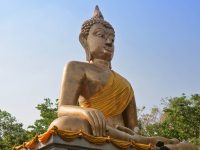
Amnat Charoen
Amnat Charoen (อำนาจเจริญ) is a mainly agricultural province in Northeastern Thailand. The province is situated along the Mekong River and it borders Laos. Tourism attractions here are mainly around culture, temples, handicrafts, and agricultural tourism, including organic farms.
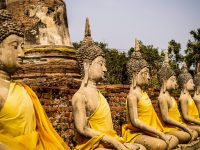
Ang Thong
Ang Thong (อ่างทอง) is located in Central Thailand in the heart of the country’s rice basket. The Chao Phraya River flows through the province, along with other rivers and many smaller canals. This, combined with very flat geography make Ang Thong an area of mostly rice fields.
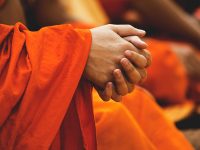
Ayutthaya
Ayutthaya (อยุธยา), a former capitol of Thailand is a short journey north from Bangkok and one well worth taking. Before being sacked by the Burmese army in 1767, the city was one of the main trading hubs in Asia.
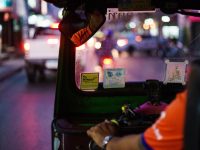
Bangkok
Bangkok (กรุงเทพ) is a bustling modern Asian city with glitzy malls, gleaming skytrains and glamorous clubs, but it still retains its old charms. Markets, canals, riverboats, and street food are everywhere you look. Bangkok is a world-class city. It’s a non-stop, exhilarating, sensual overload, and it’s well worth spending at least a few days here, or even a few years.
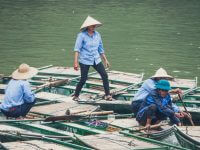
Bueng Kan
Bueng Kan (บึงกาฬ) was split off from Nong Khai province in 2011 to become Thailand’s newest province. It features a wildlife preserve along the Mekong River and a quiet border crossing into Laos. The province’s most famous attraction is Wat Phu Tok, a temple built on a rocky outcrop overlooking the Mekong plain that is accessible only by a steep and difficult climb. Monks come from all over Thailand to meditate in the various huts and caves that dot the mountain.
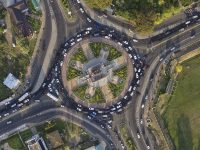
Buriram
Buriram (บุรีรัมย์) is a Northeastern province famous for its Khmer Empire archeological sites, its football team, a world-class motorsports racetrack, and an epic party at Thai New Year in April. The name Buriram means ‘city of happiness’.
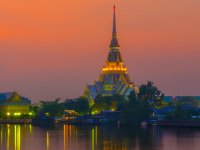
Chachoengsao
Stretching from Central to Eastern Thailand, Chachoengsao (ฉะเชิงเทรา) is a large province that includes industrial areas on outskirts of Bangkok, rice fields, mountains and forest in the east near Chanthaburi and Sa Kaew Provinces, and even a small strip of coastline along the Gulf of Thailand.
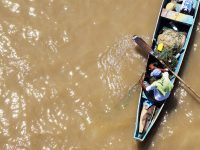
Chai Nat
Chai Nat (ชัยนาท) is one of the provinces of Central Thailand’s rice basket area. The Chao Phraya River flows through the province and is dammed there for flood control and irrigation purposes. The dam dates to 1957 and is Thailand’s first.
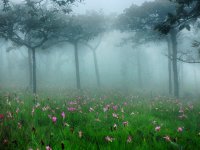
Chaiyaphum
A mountain range divides Chaiyaphum (ชัยภูมิ) province between the Isaan region to the east and the Central region to the west. Chaiyaphum Province has four different national parks!
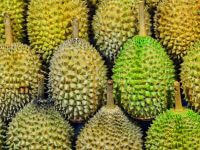
Chanthaburi
Chanthaburi (จันทบุรี) lies along the Gulf of Thailand in Eastern Thailand. Most tourists pass through on their way to Koh Chang or Cambodia, but there’s a lot do here, including pristine jungle, mountains, waterfalls, a very chill crossing into Cambodia, a nice city, and some pretty good mainland beaches.
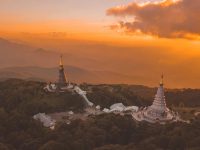
Chiang Mai
On everyone’s list of places to visit, Chiang Mai (เชียงใหม่) is an important cultural center, bustling city and home to hundreds of thousands looking to be closer to nature in a more relaxed environment.
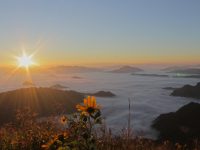
Chiang Rai
Chiang Rai (เชียงราย) is Thailand’s northernmost province and a hotspot for trekking, mountains, waterfalls and stunning viewpoints. It borders Myanmar and Laos, and all three countries come together at the once-infamous Golden Triangle along the Mekong River.
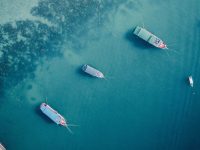
Chonburi
Chonburi (ชลบุรี) is a coastal province an hour Southeast of Bangkok. It’s best known for the City of Pattaya and the beaches of Jomtien, and there are also some small islands worth visiting. Pattaya has a reputation as a giant red light district, but there are actually a lot of other activities there, especially around adventure sports.
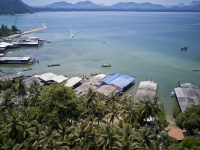
Chumphon
Chumphon (ชุมพร) is home to a marine park with a pretty stunning group of islands. There is also some good local-type tourism away from the coast, especially around river rafting. Chumphon is often passed through by travelers going by road from Bangkok to the Southern islands, but it’s definitely worth checking out.
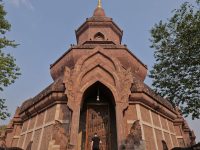
Kalasin
Kalasin (กาฬสินธุ์) is a rural and mainly agricultural province in Northeastern Thailand. It is split in two by a large reservoir that is important for flood control and irrigation. A mountain range along the edge of the province holds one national park, and the province is known for the numerous dinosaur fossils discovered there.
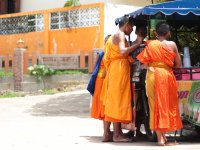
Kamphaeng Phet
Kamphaeng Phet (กำแพงเพชร) is either in the northern part of Central Thailand or the south of Northern Thailand, depending on how you look at it. The province’s proximity to the ancient capital of Sukhothai means Kamphaeng Phet is dotted with its own ancient structures and ruins.
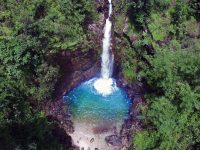
Kanchanaburi
Kanchanaburi (กาญจนบุรี) is a paradise for outdoor adventurers and history buffs. Most of the province is jungle, caves, large reservoir lakes, national parks, and waterfalls. It’s also home to the notorious WWII “Death Railway” and has some great museums and historical sites from the railroad route.
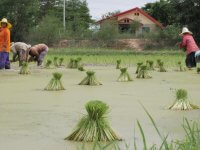
Khon Kaen
Khon Kaen (ขอนแก่น) is one of the major provinces of Issan with one of the four main cities in the region. It sits along the railway and main highway that connects Bangkok to Nong Khai and on to Vientianne Laos via the Thai-Lao Friendship Bridge.
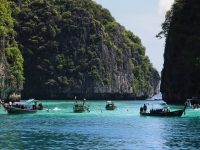
Krabi
Krabi (กระบี่) boasts more than 100 different islands, including the famous Koh Phi Phi, but there’s more to Krabi than just beaches, it also hosts some of the most famous rock-climbing in the world and a city of approximately half a million people.
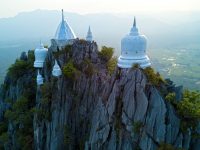
Lampang
Lampang (ลำปาง) is a Northern province studded with mountain ranges that hold some national parks. It also has a charming capital city (Lampang City) that people say is a smaller and less touristy Chiang Mai.
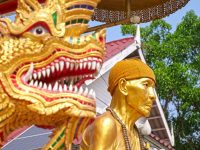
Lamphun
The Ping River flows into Lamphun (ลำพูน), an agricultural province dotted with mountain ranges outside the river valley. Historically Lamphun City was the seat of the Haripunchai Mon Kingdom and has since been controlled by the Khmer, Burmese, and Lanna Kingdoms before joining Siam.
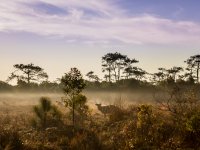
Loei
Loei (เลย) is a great place for outdoor adventure travelers. The province is covered in high mountain peaks and foggy valleys making it ideal for trekking. Geographically and culturally, Loei is in between Northern Thailand and Issan (the Northeast).
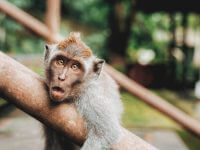
Lopburi
Lopburi (ลพบุรี) is a province in Central Thailand that has long been a part of the Kingdom stretching back past the Ayutthaya Period to the Sukothai era. Today it’s most famous for the wild monkeys that have made a home for themselves in the provincial capital.
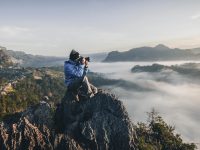
Mae Hong Son
Mae Hong Son (แม่ฮ่องสอน) is a sparsely populated Northern Thai Province with some truly stunning nature, jungle, mountains, caves and hot springs. A majority of the population belongs to the various hill tribe groups in the area. The popular town of Pai is the biggest tourist draw and serves as the main jumping off point to tourism around the province.
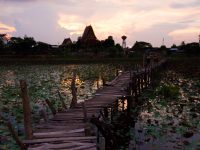
Maha Sarakham
Maha Sarakham (มหาสารคาม) is a Central Issan Province. It is home to the Northeast’s largest university, but beyond that the province consists mainly of flat plains, rice fields, and a closeup look at Issan culture.
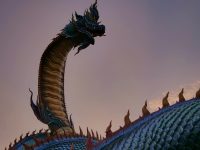
Mukdahan
Mukdahan (มุกดาหาร) was a fairly sleepy Issan province along the Mekong River until the opening of the second Thai-Laos Friendship Bridge. Now it’s an important commercial route for trade between the countries.
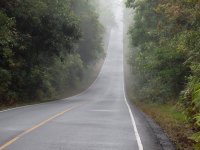
Nakhon Nayok
Nakhon Nayok (นครนายก) is a small province in Central Thailand known for its fruit orchards. The province has a number of waterfalls, and parts of the stunning Khao Yai National Park sit within the province.
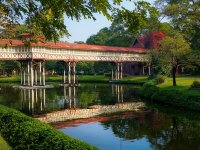
Nakhon Pathom
Nakhon Pathom (นครปฐม) is a province in Central Thailand historically known as a major fruit growing area. Today parts of it fall within the Bangkok Metropolitan Area and much of the province is industrial and manufacturing areas. Nakhon Pathom also has some major university campuses.
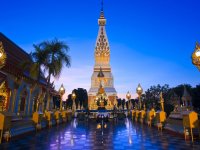
Nakhon Phanom
Nakhon Phanom (นครพนม) is a Northeastern Province that sits along the Mekong River opposite Laos. The town is a pleasant surprise of great food, friendly people, coffee shops and local living with a very small number of tourists.
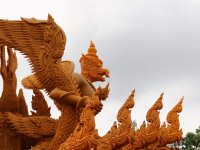
Nakhon Ratchasima
Nakhon Ratchasima (นครราชสีมา) – otherwise known as Korat – is the first major city in Issan as you travel from Bangkok. The Province features a major city, important universities, festivals and two stunning national parks. Korat is Thailand’s largest province.
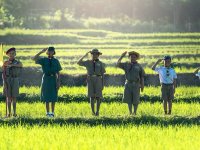
Nakhon Sawan
The Chao Phraya River forms in Nakhon Sawan (นครสวรรค์) where the Nan and Ping Rivers come together, and it’s historically been an important city for trade. Today, the province has a jungle-covered national park, and the largest freshwater wetland in Thailand.
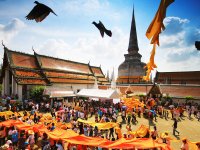
Nakhon Si Thammarat
Nakhon Si Thammarat (นครศรีธรรมราช) is a province rich in history and culture. Along with its luscious beaches, beautiful nature, picturesque waterfalls and fun activities, this is an ideal place to get an authentic taste of Thailand which is still very much untouched by tourists.
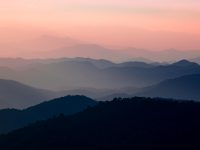
Nan
Nan (น่าน) is a remote province in Northern Thailand that’s covered in mountains and great for trekking, camping, and chasing waterfalls.
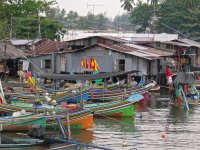
Narathiwat
Narathiwat (นราธิวาส) is a Southern Province along the Gulf of Thailand and the Malaysian border. There is very little tourism due to a long-running insurgency, and most nations warn their citizens against travel here. Narathiwat does have an interesting culture distinct from most of Thailand – the province is 80% Muslim and 80% speak Patani Malay as a first language.
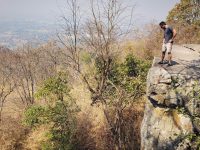
Nong Bua Lamphu
Nong Bua Lamphu (หนองบัวลำภู) is a Northeastern Province on the Korat Plateau. The area is mainly agricultural so tourism is mostly limited to temples and getting an up close look at Issan life. There is also a national park.
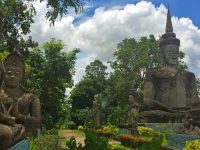
Nong Khai
Nong Khai (หนองคาย) is a Northeastern Province along the Mekong River Valley. It is a common passing through point for overland travel between Thailand and Vientianne, Laos which is just over the river from Nong Khai City. The best-known tourist attraction is the strangest sculpture park you’ve ever seen.
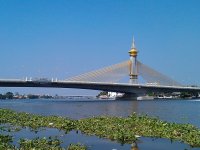
Nonthaburi
Nonthaburi (นนทบุรี) is a Central Thai Province that is part of the Greater Metropolitan Bangkok Area. It is mostly urban with the same feel as most non-central Bangkok areas. The most interesting place to visit here is Koh Kret – an island formed by a canal that was dug to shorten the distance of the Chao Phraya River.
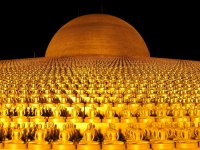
Pathum Thani
Pathum Thani (ปทุมธานี) is part of the Greater Bangkok Metropolitan Area and many parts look and feel just like Bangkok. There are also agricultural areas of picturesque rice fields all criss crossed by canals.
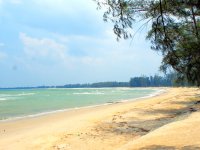
Pattani
Pattani (ปัตตานี) is a far Southern Province along the Gulf of Thailand. It has long stretches of beaches and a mountain range in the south with a national park and some nice waterfalls. The population is nearly 90% ethnic Malay Muslim with their own language and culture. Pattani is one of three Southern Provinces where an insurgency has caused most foreign embassies to recommend against non-essential travel.
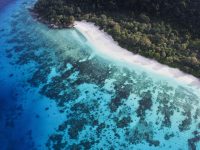
Phang Nga
Phang Nga (พังงา) Province has coastline along the Andaman Sea to the west and Phang Nga Bay to the south. Many of the islands in the Bay are part of Phang Nga Province, as are the Similan and Surin Islands which boast the best scuba diving in Thailand. A national park along the coastline and mangrove forests of the Bay is a stunning place to visit and a boat trip or kayak expedition here should be on any bucket list.
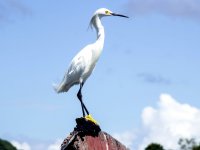
Phatthalung
Phatthalung (พัทลุง) is a Southern Thai Province without any coastline, though it does sit along the large Songkhla Lake. The province has a number of forested areas, wetlands, mountains, waterfalls, caves, and unique Southern Thai culture.
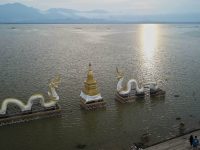
Phayao
Phayao (พะเยา) is a Northern Province mostly covered in mountains. The provincial capital is a quiet town set along a picturesque freshwater lake. There are a number of national parks and protected areas with some trekking, waterfalls, and hill tribe villages.
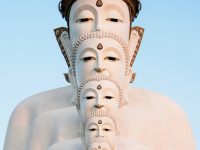
Phetchabun
Phetchabun (เพชรบูรณ์) is a Province situated in between the Central, Northern and Northeastern regions of Thailand. It has a number of mountain ranges cut through with wide fertile valleys. The province has national parks, waterfalls, forests and lakes.
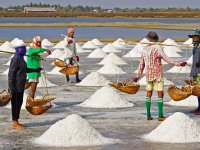
Phetchaburi
Phetchaburi (เพชรบุรี) Province connects the southern peninsular provinces to the Central Region of Thailand. Nearly half the province along the border with Myanmar is occupied by Thailand’s largest national park. Phetchaburi has some beaches that may not be the postcard-perfect varieties found elsewhere in Thailand, but are still quite nice.
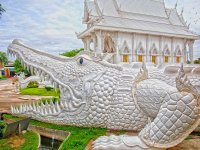
Phichit
Phichit (พิจิตร) is a province in Central Thailand. It consists of mostly low-lying river areas making Phichit an important agricultural province, mainly for rice and fruit. Most of the tourist sites here are around temples and local culture.
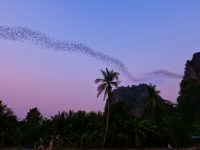
Phitsanulok
Phitsanulok (พิษณุโลก) sits in the Upper-Central Region of Thailand and even has a small finger of land that extends to the Lao border. Much of the province is fertile land dotted with canals and rice fields, while some areas have mountains, national parks, and scenic plateaus.
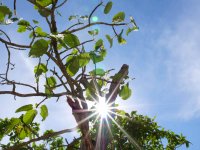
Phrae
Phrae (แพร่) is a Northern Thai province of agricultural areas, mountains, waterfalls, Lanna culture and temples.
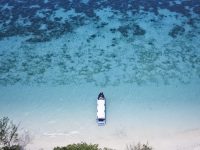
Phuket
The largest island in Thailand, and contains 32 other islands within its waters. Phuket (ภูเก็ต) is one of the most popular destinations in Thailand for both expats and holiday makers.
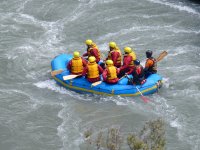
Prachin Buri
Prachin Buri (ปราจีนบุรี) is a province in the Southern Issan region. It is near enough to Bangkok and Chonburi to have a number of industrial parks and manufacturing facilities. Prachin Buri also has agriculture, and at the right time of year, whitewater rafting.
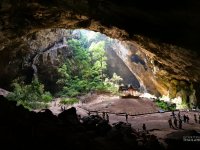
Prachuap Khiri Khan
Prachuap Khiri Khan (ประจวบคีรีขันธ์) is a long, narrow province along the the Southern Peninsula of Thailand. It is sandwiched between the Gulf of Thailand to the east, and Myanmar to the west. The coast features a number of long, sandy beaches, the best known of which is the resort town of Hua Hin. Prachuap also features mountainous national parks, caves, waterfalls, and good trekking opportunities.
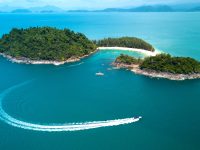
Ranong
Ranong (ระนอง) is one of the provinces along the Andaman Sea in Southern Thailand. It shares a northern border with Myanmar. Compared to the other provinces further south, Ranong gets few tourists, but it does have some quiet yet stunning islands, as well as a very nice marine park that can be visited in an island hopping day trip.
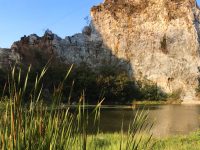
Ratchaburi
Ratchaburi (ราชบุรี) is a province west of Bangkok most famous for the floating markets of Damnoen Saduak. Further out near the Myanmar border are forest-covered limestone mountains, caves, and wetlands.
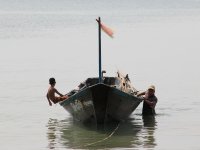
Rayong
Rayong (ระยอง) is a province southeast of Bangkok along the coast of the Gulf of Thailand. It is best known for the island of Koh Samet, famous for its white sand beaches and clear water. The mainland also has long stretches of empty beaches which are quite pleasant, but less beautiful than those on the island.
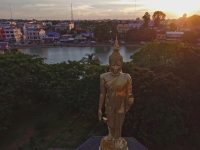
Roi Et
Roi Et (ร้อยเอ็ด) is a province in Central Issan. It is mainly agricultural, though it has a charming capital city centered around a manmade lake with large park on an island in the middle.
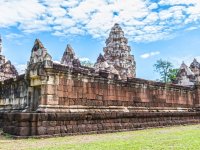
Sa Kaeo
Sa Kaeo (สระแก้ว) is a province due east of Bangkok along the Cambodian border. Sa Kaeo has two national parks, numerous waterfalls, and some important archeological ruins from the Khmer Empire. It sits between the Eastern and Northeastern regions.
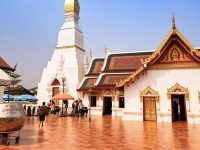
Sakon Nakhon
Sakon Nakhon (สกลนคร) is a Northeastern Province on the Korat Plateau not far from the Mekong River Valley. It is a mainly agricultural province where most of the tourist attractions are temples and local culture. There is a nice lake near the provincial capital that’s worth a visit for a picnic.
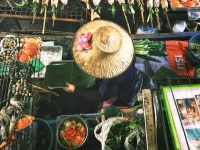
Samut Prakan
Samut Prakan (สมุทรปราการ) is the southernmost province in the Bangkok Metropolitan Area. The province does have some nice escapes from the city, including the famous Green Lung, and the seaside area of Bang Pu.
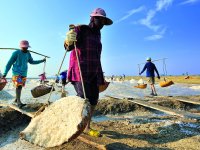
Samut Sakhon
Samut Sakhon (สมุทรสาคร) is part of the Bangkok Metropolitan Area, but there are places that can feel removed from the hustle and bustle. The province is mostly coastal so there is great seafood, nice markets, and some interesting salt ponds.
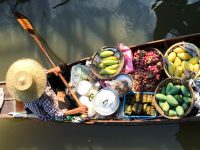
Samut Songkhram
Samut Songkhram (สมุทรสงคราม) is a Central Province along the coast west of Bangkok. It is best known for the Maeklong Railway Market and the Amphawa Floating Market.
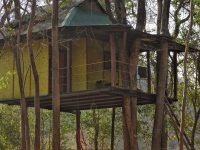
Saraburi
Saraburi (สระบุรี) is a Central Thai Province along the main railway line north of Bangkok. It has a few national parks, and some of the best rock climbing in Thailand.
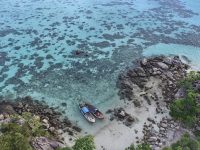
Satun
Satun (สตูล) is a Southern Thai Province along the Andaman Sea and bordering Malaysia. It is best known for the island of Koh Lipe, and contains two marine parks and a coastal national park with a large freshwater swamp.
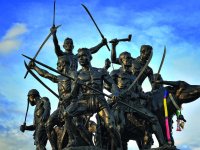
Sing Buri
Sing Buri (สิงห์บุรี) is located in Central Thailand along the Chao Phraya River Valley. Most tourist attractions in the province center around temples, or experiencing local culture.
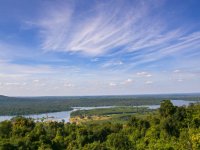
Sisaket
Sisaket (ศรีสะเกษ) is a Northeastern Province along the Cambodian border. The province has some national parks and numerous ruins and archeological sites from the Khmer Empire.
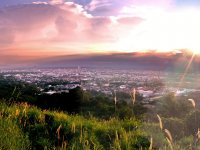
Songkhla
Songkhla (สงขลา) is a Southern Thai Province along the Gulf of Thailand and the Malaysian border. The boom town of Hat Yai is the largest city but not the provincial capital. Songkhla has some nice but quiet beaches and a few islands.
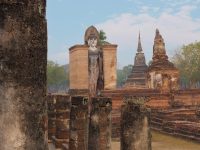
Sukhothai
Sukhothai (สุโขทัย) is one of the most important places in Thai history. As the first capital of the Kingdom of Siam beginning 800 years ago, it has important ruins and archeological sites. The ancient capital is a Unesco Heritage Site and is well worth visiting, even for those who don’t ordinarily love temples and history.
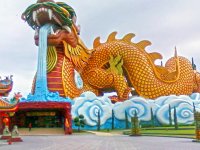
Suphan Buri
Suphan Buri (สุพรรณบุรี) is a Central Thai province. It is mostly flat and agricultural so a lot of the tourism is centered around local culture and religious sites. There are some small mountains and some national parkland that has forested areas and some waterfalls.
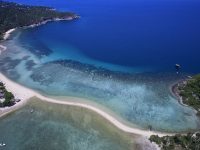
Surat Thani
Surat Thani (สุราษฎร์ธานี) is a rural province in southern Thailand but within this province are some of the most beautiful islands, beaches and national parks in the country. There’s a lot to love about Surat Thani.
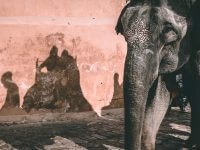
Surin
Surin (สุรินทร์) is a Northeastern Province bordering Cambodia to the South. It has an interesting blend of Thai-Issan (Lao) mixed with Khmer culture. The province has always been caught in the middle between the cultures and empires of Laos, Khmer and Siam making for fascinating history and culture.
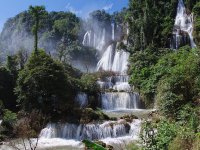
Tak
Tak (ตาก) is a paradise for outdoor adventurers, located in Northern Thailand. Tak has Thailand’s largest dam and reservoir, numerous hill tribe villages, trekking, whitewater rafting, and the country’s biggest waterfall.
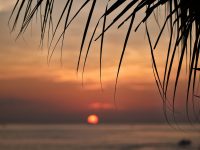
Trang
Trang (ตรัง) is a Southern Province with 200km of coastline along the Andaman Sea. There are a number of great beaches, islands, and a marine park all worth visiting. Trang sees less tourists than many other coastal provinces but is no less beautiful.
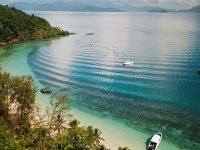
Trat
Trat (ตราด) province contains some of the best island and beach hopping in all of Thailand. Islands such as Koh Mak are still fairly void of crowds, so visit soon because these gems are getting the spotlight.
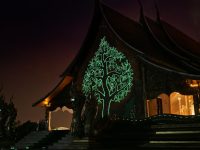
Ubon Ratchathani
Ubon Ratchathani (อุบลราชธานี) is Thailand’s easternmost province. It borders both Cambodia and Laos, and features virgin rainforest, stunning waterfalls, misty mountains, and wildflower blooms.
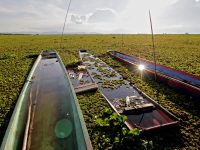
Udon Thani
Udon Thani (อุดรธานี) is one of the regional hubs for Northeastern Thailand. There is not a lot of outdoor adventure travel in Udon, but the province makes up for it in charming Issan culture and a nice provincial capital.
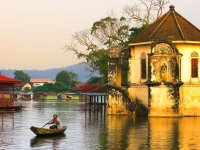
Uthai Thani
Uthai Thani (อุทัยธานี) is in the lower western area of Northern Thailand. It has a wildlife reserve that is a Unesco World Heritage Site and still has wild tigers and elephants. It’s off the tourist track but is a great province for outdoor adventure travel.
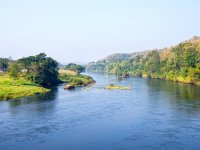
Uttaradit
Uttaradit (อุตรดิตถ์) is a Northern Province that’s great for lovers of the outdoors. It has three national parks including the stunning and mountainous Phu Soi Dao. There are also a dam and reservoir, and lots of caves and waterfalls. The province shares a border with Laos where a Cold War battle was fought between the two countries in the late 1980s.
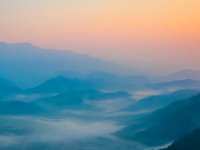
Yala
Yala (ยะลา) is a landlocked province in the Deep South of Thailand along the Malaysian border. It has many sparsely populated areas with high mountains, waterfalls, caves, dense jungle, and beautiful foggy mornings. An insurgency in the majority-Muslim province has led most foreign governments to advise their citizens against travel to Yala.
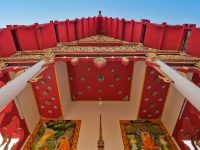
Yasothon
Yasothon (ยโสธร) is a mainly agricultural Northeastern Province. There is not a lot of outdoor adventure travel, but there are some nice local cultural features, especially the famous Rocket Festival held every May.